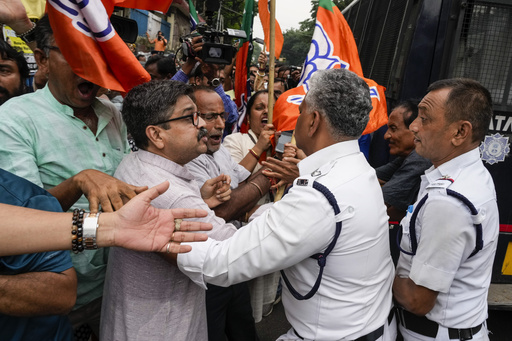India’s medical personnel initiated a nation-wide strike in response to the tragic rape and murder of a trainee doctor at a state-run hospital in West Bengal. The Indian Medical Association, the country’s largest group of doctors, organized the strike, leading to the closure of non-essential services at hospitals across India for 24 hours, impacting numerous patients. The strike was driven by the demand for a safer working environment, particularly for women in the medical field.
The victim, a 31-year-old trainee doctor, was found dead at the R.G. Kar Medical College and Hospital in Kolkata, with allegations of gang rape by the victim’s family. A police volunteer at the hospital has been detained in connection with the crime, supported by autopsy findings of sexual assault. The case is now under federal investigation due to accusations of mishandling by state government officials.
Protests, predominantly led by women, erupted across India with demands for justice for the victim. Demonstrators took to the streets in “Reclaim The Night” marches, advocating for the harshest punishment for the perpetrators. Medical workers are not only seeking justice for the victim but also pushing for improved safety measures for doctors and paramedics in healthcare settings nationally.
The Indian Medical Association is urging public support in their fight for justice, labeling the incident a “crime of barbaric scale” attributable to the lack of safe spaces for women. The association is also calling for stricter laws to safeguard medical professionals from violence, proposing that assaults on healthcare workers while on duty should be considered non-bailable offenses.
Sexual violence against women is a prevalent issue in India, prompting many cases to go unreported due to societal stigma and a perception of police inefficacy. Official statistics reveal a 20% rise in reported rape cases in 2022 compared to the previous year. The nation has a history of notable incidents, like the 2012 gang rape and murder that sparked nationwide protests leading to the introduction of harsher penalties and fast-track courts for sexual crimes.
Legislative changes since 2013 have expanded the scope of India’s rape laws to include stalking and voyeurism, among other amendments aimed at addressing gender-based violence. However, the recent tragedy has reignited concerns over the safety of women, particularly within the healthcare sector, underscoring the urgent need for enhanced protection and justice for victims of sexual violence.


